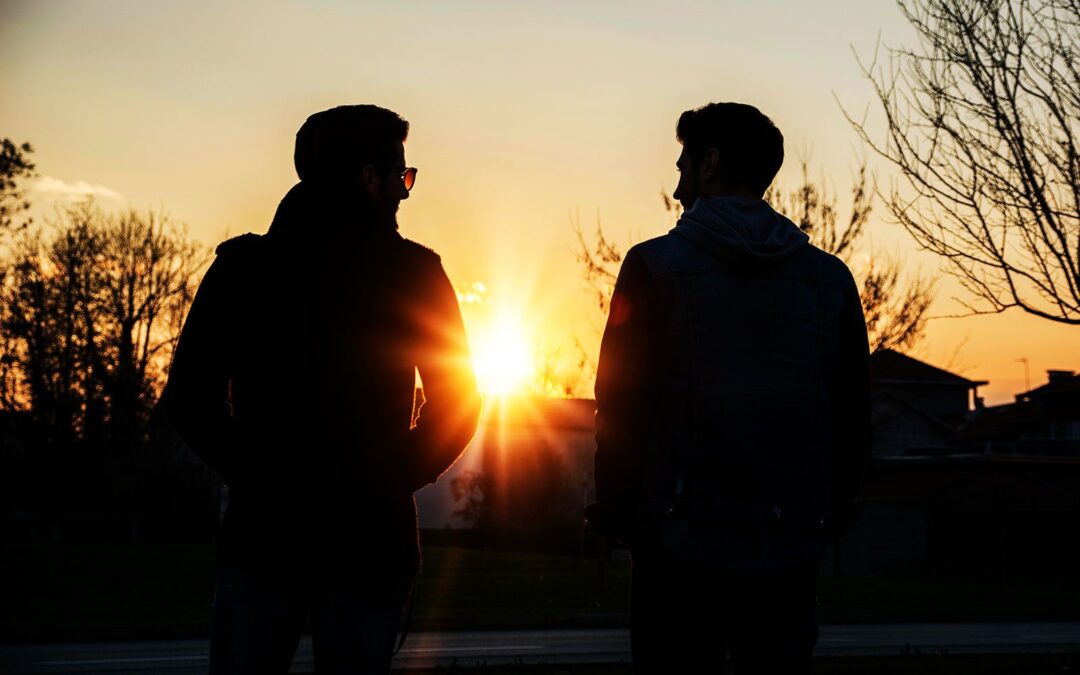What are Friends for Anyway?
Years ago, when I was in the marketing business, I had to meet with an attorney to discuss the ins and outs of my business and what I could and could not get away with. In it, he made a comment along the lines of “so long as you are not selling friendship, you should be fine.”
What he meant was that I needed to ensure that I was selling something less ambiguous than friendship. I was selling marketing, so it was pretty close.
What makes friendship so ambiguous in the first place?
Unlike other relationships, friendship has no formal structure. Your friends have no reason other than the daily personal choice to remain in your life. They are not obligated to you in any manner, and you might have already found in your life that can be both disappointing and shockingly beautiful.
Now, let’s be clear, for the sake of this conversation, we are talking about true friends here. On average most people have 4 close relationships in their lives, and only 2 of them are friendships. Generally, we have the most friends when we are teens (9) and it begins to dwindle from there. We lose about half of our friends every 7 years, and that is not because of any catastrophe or giant falling out (although it may be) but because friendships take cultivation and effort beyond what we might take for granted with our relatives and spouses Friendships that develop casually have a tendency to fall by the wayside unless we make a conscious effort to support them.
The reason for this is friends are pretty forgiving. Don’t talk to a friend for a month and it goes almost unnoticed. Don’t talk to your wife for a month and you are probably headed to divorce. At the same time, this does not mean we should take these valuable relationships for granted, and given their clear value to our health and happiness, maybe we should make them a priority.
Friends are quite literally lifesavers
- A 2006 study compared women with breast cancer who had 10 close friends with women who had 0, and the women with the friends quadrupled their chances of survival.
- Loneliness has the same effect on your health as would smoking 15 cigarettes a day
Having cancer blessed me with the opportunity to see a lot more clearly when it came to my friends. Cancer, for all the negatives, really gives you a valuable perspective on a lot of things, including friendship. It brought me closer to the most important people in my life and eliminated a few that might not have had my best interests at heart. I had affluent friends who didn’t help, and veterans I didn’t know who visited and took up donations on my behalf. Both were blessings in their own way, but most of all, they helped me reevaluate what a friend means, which I can now try to share with you.
Friends are people who support, challenge, and motivate you without keeping score or looking for a return for their effort.
Going through life I can think of countless times that friends rescued me from myself. Taking nothing away from my family’s support, which I couldn’t have done without. This post is about friends. The closest kind.
While God and the doctors did all they could to keep me alive, it was my closest friend who got me through recovery and into prosperity. Beating cancer is tough, but recovery has its own set of challenges that you can’t really share openly with family. For me, my friends picked up where my family left off. It is no wonder that female cancer survivors did better when they had friends in their corner.
There is so much more thereafter that I am certain that if I were left to my own devices, I wouldn’t be writing this today. Insecurities about how you look, hopelessness about dating, getting used to the outside world again, fitness, finances, having a sense of humor about your situation, and general encouragement and cheerleading are all very important for going from surviving to thriving. The amount of handholding that only friends can provide with everyday challenges is tremendous. Without him, I wouldn’t be this far, and it doesn’t escape me how lucky I am to have him in my life.
But why? What makes friends so significant, and what makes them and us go to the lengths we do for people we otherwise have no obligation to or responsibility for? How do people who started off as strangers end up having such a significant impact on our health, lives, and happiness?
Because friends are a choice, what makes us choose and show up for the people we do?
We see our friends as extensions of ourselves.
- Matthew 22:37-39 “love thy neighbor as thyself”.
- Aristotle said that “friends are disposed toward each other as they are disposed to themselves: a friend is another self”
- Cicero “For a true friend is one who is, as it were, a second self”
- Edith Warton “There is one friend in the life of each of us who seems not a separate person, however dear and beloved, but an expansion, an interpretation, of one’s self”
So it is part altruism, but it is also how closely we recognize our friends as part of ourselves.
Neuroscientists put people into an MRI and then asked them questions about friends. While the areas of positive emotions lit up, they also lit up the parts of the brain associated with self-processing. When women heard the names of their close friends, their gray matter activated in the same way it did when they heard their own names!
Now that we have established how important friends are to us and our well-being, how do we invest in our current relationships and even look to cultivate new ones?
How do we invest in the friendships that we already have?
- Be Loyal
- Be Reliable
- Be Patient.
- But most of all, with your time! On any given day you have 24 hours. 8 sleeping, 8 at work, then 8 free (if you are lucky). Any time you devote to one another is valuable and the ultimate measure of friendship. I am blessed to have more time than most, but I also recognize that my friend Tim is super busy but still finds the time to spend keeping in touch. Don’t mistake time alone as the only gauge, but it certainly is a significant one. When someone gives you their time it is more valuable than anything else..appreciate it!
What can we do to make new friends?
- Be open
Oftentimes, as we get older, we stop making meaningful friendships. We think that we have all the friends we need, or that we are too old or dont have enough time to invest. Yes, we meet other people, but we really don’t establish long-term or deeper connections.
- Be vulnerable
This one is the most important, and also the one I have had the most trouble with in my
life. Being vulnerable is tough for men; we are scared of letting people get too close in the event that it could be used to hurt us. Trust is built by being vulnerable. The best way to earn trust is to trust. I know we frequently make the mistake of expecting others to “prove themselves” to us first, but one of life’s great secrets is to open up, and people will gravitate toward you. When I was sick, being vulnerable was my default setting. I couldn’t hide my illness or frailty, but this was a valuable lesson for the rest of my life. At this point in my life, no one was against me, and everyone was open to doing all they could to help. Why not try to live a life where you always have that level of empowerment? The key to this is to be vulnerable.
In closing, this post is about real friends. People who are there in your life to support you without asking for anything in return. We all have acquaintances that, while wonderful, don’t fit this description. Not to say, that they one day cannot, but it is important to make this differentiation. I would guess that most of us have very few people that fit this qualification, but understanding what we should look for in our true friends not only helps us identify them but appreciate them more, as well as be aware of what to look for in future potential friendships.


